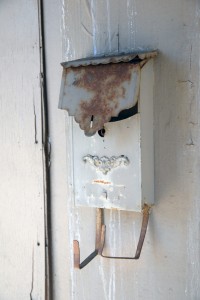By:Â Robert J. Nahoum
Federal debt collection laws known as the Fair Debt Collection Practices Act (FDCPA for short) generally prohibits debt collectors from using unfair or unconscionable debt collection practices when trying to collect a debt. In addition to these prohibitions, debt collectors are required by the FDCPA to provide consumer with certain notices of your rights.
In its first communication with you (or within five days of it), a debt collector has to notify you of:
(1) the amount of the debt;
(2) the name of the creditor to whom the debt is alleged to be owed;
(3) a statement that unless, within thirty days after receipt of the notice, you dispute the validity of the debt, the debt will be assumed to be valid by the debt collector (not the court);
(4) a statement that if you notify the debt collector in writing within the thirty-day period that the debt is disputed, the debt collector will obtain verification of the debt which will be mailed to you; and
(5) a statement that, upon your written request made within the thirty-day period, the debt collector will provide you with the name and address of the original creditor if it is different from the current creditor.
If you notify the debt collector in writing within the thirty-day period that the debt is disputed, or that you request the name and address of the original creditor, the debt collector must cease collection of the debt until the debt collector obtains verification of the debt, or the name and address of the original creditor, and a copy of the verification, or name and address of the original creditor, is mailed to you.
If the debt collector is unable to verify the debt, they are likely precluded from collecting the debt, contacting you about the debt any further, and to report it the account to the credit bureaus under Fair Credit Reporting Act (FCRA). Doing so may be violation of the FCRA, which like the FDCPA may entitle you to $1,000 statutory in damages.
While your written verification request does not have to be anything fancy and does not have to follow any official format, it should be sent by certified mail return receipt requested so that you have definitive proof that it was sent and received. The following example is generally sufficient to establish a valid verification request:
Dear Debt Collector:
This letter is in response to the debt collection letter I received from you on [Date of Letter]. This communication is not a refusal to pay, but a notice pursuant to the Fair Debt Collection Practices Act, 15 USC 1692g Sec. 809 (b), that the subject claim is disputed and validation is requested.
Accordingly, I request that the following information be provided:
• The subject of the disputed debt;
• The calculation of such debt;
• Copies of any agreements or papers that form the basis for such debt;
• A copy of any judgment obtained;
• The Identify of the original creditor if applicable;
Your truly,
[Your Signature]
[Your Name]
In addition, in each and every communication with you, the debt collector must advise you that the communication is from a debt collector who is attempting to collect a debt. This notice requirement is often called in the debt collection industry the “mini-miranda†warnings harkening back to the warning a criminal suspect is read upon arrest. The mini-miranda requirements apply to collection agencies, debt buyers and even lawyers (except for court papers).
If a debt collector violates the FDCPA, you can sue for statutory damages up to $1,000.00 plus actual damages (like pain and suffering) and your attorney’s fees. In FDCPA cases, most good consumer lawyers don’t charge their clients a penny out of pocket.
The Law Offices of Robert J. Nahoum, P.C
(845) 232-0202
www.nahoumlaw.com
info@nahoumlaw.com
Web: www.NahoumLaw.com
Web: www.FDCPAAttorney.net

